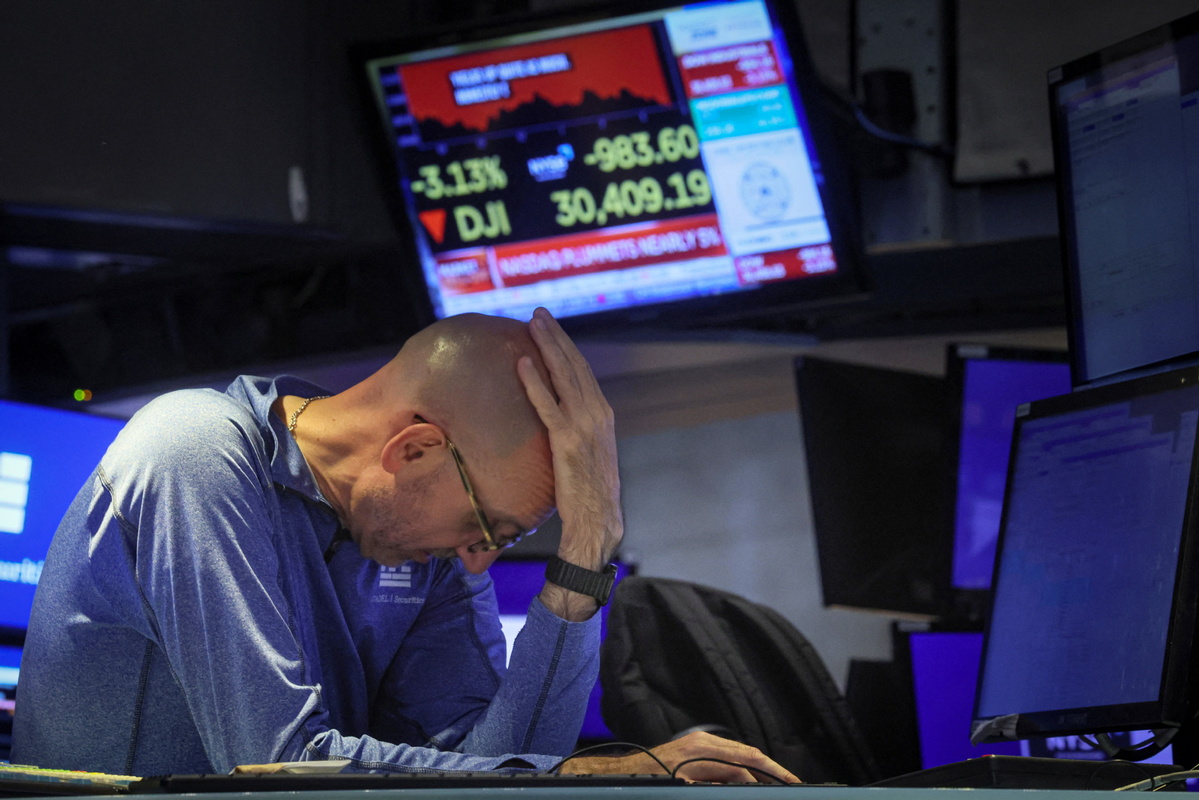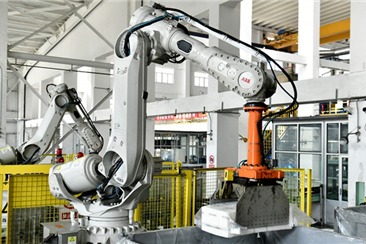S&P 500 confirms bear market as recession worry grows


NEW YORK - US equities tumbled on Monday, with the S&P 500 confirming it is in a bear market, heightening fears that the expected aggressive interest rate hikes by the Federal Reserve could push the economy into a recession.
The benchmark S&P index has fallen for four straight days, its longest losing streak in three months, with the index now down 21.8 percent from its most recent record closing high to confirm a bear market began on Jan 3, according to a commonly used definition.
All the major S&P sectors were sharply lower, with only five components of the S&P 500 in positive territory on the day. Markets have been under pressure this year as climbing prices have put the Fed on track to take strong actions to tighten its monetary policy, such as interest rate hike.
The Fed is scheduled to make its next policy announcement on Wednesday and investors will be highly focused on any clues for how aggressive the central bank intends to be in raising rates.
High-growth market heavyweights such as Apple Inc, Microsoft Corp and Amazon.com Inc were the biggest drags on the S&P 500, as the yield on the benchmark 10-year US Treasury note hit 3.44 percent, its highest level since April 2011. Growth stocks are more likely to see their earnings suffer in a rising rate environment.
A hotter-than-expected consumer price index (CPI) reading on Friday prompted traders to price in a total of 175 basis point (bps) in interest rate hikes by September, while expectations for a 75 basis point hike at the June meeting have jumped to nearly 30 percent from 3.1 percent a week ago, according to CME's Fedwatch Tool.
The Dow Jones Industrial Average fell 876.05 points, or 2.79 percent, to 30,516.74, the S&P 500 lost 151.23 points, or 3.88 percent, to 3,749.63 and the Nasdaq Composite dropped 530.80 points, or 4.68 percent, to 10,809.23.
The longest S&P 500 bear market lasted just over five years, starting on March 6, 1937 and ending on April 29, 1942 while the shortest lasted just over a month, beginning on Feb 19, 2020 and ending on March 23, 2020, according to S&P Dow Jones Indices.
It has taken a little over a year on average for the index to reach its bottom during bear markets, and then roughly another two years to return to its prior high, according to CFRA Research.
In addition, the two-year 10-year US Treasury yield curve briefly inverted for the first time since April, which many in the markets see as a reliable signal that a recession could come in the next year or two.
The Nasdaq Composite index, which suffered its fourth straight drop, confirmed it was in bear market territory on March 7 and has declined roughly 30 percent this year.
The CBOE Volatility index, also known as Wall Street's fear gauge, spiked to its highest level since May 9 at 35.05 before closing at 34.02. Still, many analysts view the level as somewhat subdued and could mean more selling pressure is in store.
Volume on US exchanges was 14.98 billion shares, compared with the 11.95 billion average for the full session over the last 20 trading days.
Declining issues outnumbered advancing ones on the NYSE by a 16.62-to-1 ratio; on Nasdaq, a 7.00-to-1 ratio favored decliners.
The S&P 500 posted 1 new 52-week highs and 76 new lows; the Nasdaq Composite recorded 12 new highs and 743 new lows.
Reuters




































